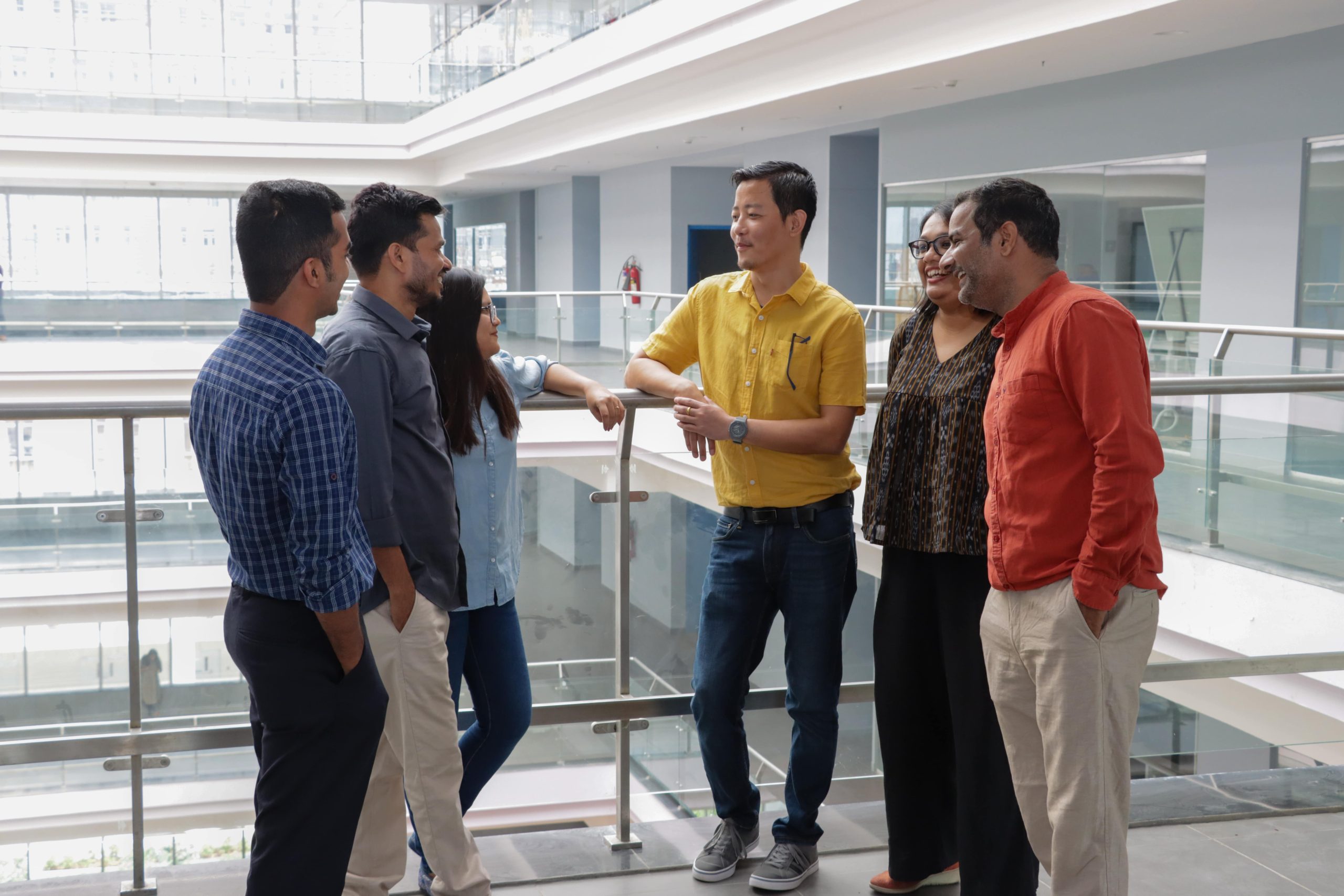The foundational courses of Liberal Arts offered at SRM University-AP enclose subjects from various disciplinary vantage points. These courses are designed in such a way that they impart students with both intellectual and practical skills. The department of Liberal Arts merges perspectives from Sociology, Political Science, Anthropology, Media Studies, History, and Philosophy to help students develop a deeper understanding and a critical outlook on the events in everyday life. Students get trained to go beyond common sensical notions. This deeper understanding is essential in building a career in the development sector, new forms of media as well as academics.
e.g., Introduction to Philosophy
e.g., Sociology, Anthropology
(e.g., Media and Nationalism)
(e.g., Community services, Fieldwork)
(e.g., Dissertation)

BA in Liberal Arts (Hons.) at SRM University-AP helps the student develop an understanding from marginalised perspectives - be it through gender, ethnicity, caste, or class, which is an asset in a post-colonial world. Skills of observation, analysis, research, critical thinking and writing, and dealing with people from different cultures break down the notion of the ‘other’ and help create careers in the abovementioned fields. The curriculum is designed to suit contemporary trends in liberal arts rather than boxed disciplines. For example, a combination of the sociology of work, sociology of development, anthropology of climate change, journalism, and various theories of political science, ethics and philosophy.
Students will understand professional and ethical responsibility. They will learn to apply ethical principles, carry out their responsibilities and master the norms of professional practice. Courses are focused on the practice of writing through regular classroom exercises. Ability enhancement courses like foreign language studies will prepare them for international exposure.
Skill enhancement courses such as the intensive qualitative research course give the students a head start for engagement in social research if they want to get work experience after graduation. Internships with NGOs, Research Institutes like CDS, CESS, ICRISAT, International Justice Mission, Nandi Foundation, Save the Children, and Centre for Pastoralism, to name a few, further give diverse and intensive experiences to students. The department regularly invites resource people to interact with the students. These resource people are development professionals, academicians in globally eminent institutes, and journalists with years of experience. Faculty members have training in diverse subjects from national and international institutes like the University of Delhi, University of Hyderabad, Sikkim University, Jawaharlal Nehru University, Indian Institute of Technology Guwahati, and University College London.
Capable of demonstrating comprehensive knowledge and understanding of one or more disciplines that form a part of an undergraduate programme of study.
Ability to evaluate the reliability and relevance of evidence; Capacity to extrapolate from what one has learned and apply their competencies to solve different kinds of non-familiar problems, rather than replicate curriculum content knowledge; and apply one’s learning to real-life situations.
Capability to apply analytic thought to a body of knowledge; analyse and evaluate evidence, arguments, claims, and beliefs based on empirical evidence; identify relevant assumptions or implications; formulate coherent arguments; critically evaluate practices, policies and theories by following a scientific approach to knowledge development. Critical sensibility to lived experiences, with self-awareness and reflexivity of both self and society.
Ability to analyse, interpret and draw conclusions from quantitative/qualitative data; and evaluate ideas, evidence and experiences from an open-minded and reasoned perspective pertaining to incorporating into a system.
A sense of inquiry and capability for asking relevant/appropriate questions, problematising, synthesising, and articulating; Ability to recognise cause-and-effect relationships, define problems, formulate hypotheses, test hypotheses, analyse, interpret and draw conclusions from data, establish hypotheses, predict cause-and-effect relationships; ability to plan, execute and report the results of an experiment or investigation.
Capability to use ICT in a variety of learning situations; demonstrate the ability to access, evaluate, and use a variety of relevant information sources; and use appropriate software for analysis of data.
Understand the impact of scientific solutions in societal and environmental contexts, and demonstrate the knowledge of, and need for sustainable development.
Possess knowledge of the values and beliefs of multiple cultures and a global perspective; and capability to effectively engage in a multicultural society and interact respectfully with diverse groups; Ability to embrace moral/ethical values in conducting one’s life, formulate a position/argument about an ethical issue from multiple perspectives, and use ethical practices in all work. Capable of demonstrating the ability to identify ethical issues related to one’s work. Avoid unethical behaviour such as fabrication, falsification or misrepresentation of data or committing plagiarism, not adhering to intellectual property rights; appreciating environmental and sustainability issues; and adopting objective, unbiased and truthful actions in all aspects of work.
Ability to work effectively and respectfully with diverse teams; facilitate cooperative or coordinated effort on the part of a group and act together as a group or a team in the interests of a common cause and work efficiently as a member of a team.
Ability to express thoughts and ideas effectively in writing and orally; Communicate with others using appropriate media to confidently share one’s views and express herself/himself; demonstrate the ability to listen carefully, read and write analytically, and present complex information clearly and concisely to different groups.
Capability for mapping out the tasks of a team or an organisation, setting direction, formulating an inspiring vision, building a team that can help achieve the vision, motivating and inspiring team members to engage with that vision, and using management skills to guide people to the right destination, in a smooth and efficient way.
Ability to work independently, identify appropriate resources required for a project, and manage a project through to completion; Ability to acquire knowledge and skills, including “learning how to learn”, that is necessary for participating in learning activities throughout life, through self-paced and self-directed learning aimed at personal development, meeting economic, social and cultural objectives, and adapting to changing trades and demands of the workplace through knowledge/skill development.

